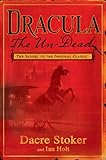On Thursday, October 14th, Booking through Thursday asked:
If you could rewrite the ending of any book, which book would it be? And how would you change it?
Even though I have a laptop and a netbook and an iPhone and a Kindle already, I spent a good part of last night surfing laptop deals lusting over the newer tech I don’t have. I say this because it’s the reason I’m answering “Booking through Thursday” on Friday morning at eleven.
As to rewriting the ends of novels: Sometimes I wish Jane had not returned to Rochester at the end of Jane Eyre, because I don’t think their relationship was terribly healthy. I maintain that J.K. Rowling’s final chapter of the Harry Potter saga, in Harry Potter and the Deathly Hallows was a cop-out meant to appease fan-girl shippers. (I also maintain that Snape would have known how to avoid death by snakebite, and in MY world he’s alive, but that’s not the actual ending, just the precursor to it.) I don’t believe that most people marry their high school sweethearts, and I think Hermione would have quickly outgrown Ron – or, as often happens – Ron would have embraced adulthood and grown beyond Hermione – he’s the more well-rounded of the two.
It is Dracula, however, that has an ending which really irritates me, although it didn’t do so until I read Fred Saberhagen’s series of post-novel pastiche/sequels, beginning with The Dracula Tapes. Why does it it annoy me? Read the passage again:
As I looked, the eyes saw the sinking sun, and the look of hate in them turned to triumph.
But, on the instant, came the sweet and flash of Jonathan’s great knife. I shrieked as I saw it shear through the throat. Whilst at the same moment Mr. Morris’s bowie knife plunged into the heart.
It was like a miracle, but before our very eyes, almost in the drawing of a breath, the whole body crumbled into dust and passed from our sight.
If you read it carefully, you note three things:
1) Dracula’s throat was sliced, but he wasn’t beheaded.
2) His heart was pierced by another knife – NOT a wooden stake.
3) He crumbled into dust.
A casual reader would dismiss this as a death scene, except that earlier in the novel when listing Dracula’s powers, Stoker tells us that he can crumble into elemental dust. I maintain, therefore, that the ending of Dracula is flawed because Stoker did not follow the rules of his own world – rules he created. Either the scene needs to make it explicit that the Count’s head was separated from his body, OR, Stoker was leaving it open for a sequel, and I just can’t credit Stoker with that much forethought.
So, yes, I would rewrite Dracula.


